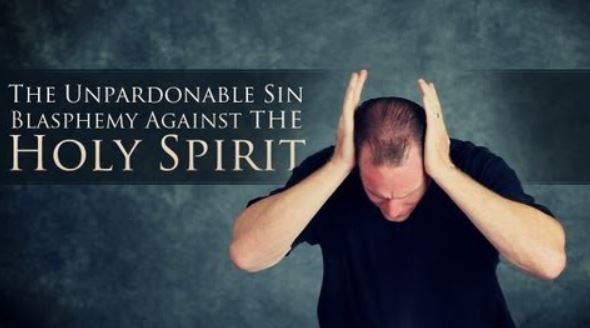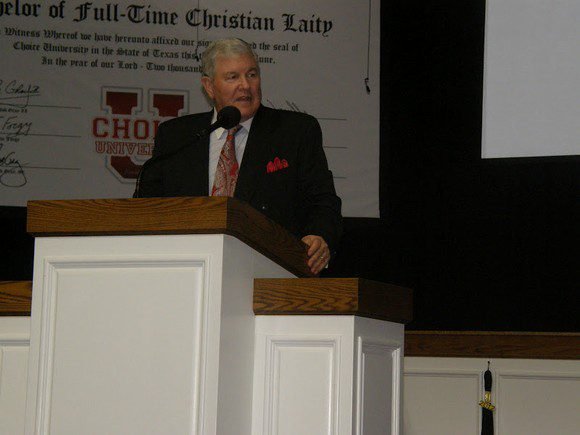
Rebecca Davis works for the American Family Association (AFA). She is the assistant editor of The Stand, the official whine and outrage newsletter of the AFA. Several years ago, she wrote an eye-opening article about her 4-year-old’s propensity to lust after women in bathing suits and lingerie. While she denies that she is saying her little boy lusts, her article suggests otherwise (link no longer active):
It is almost swimsuit season. There are a number of adjectives I could use to describe my disdain for this time of year. Itsy-bitsy and teeny-weeny are two of them.
No, I’m not a prude, and no, I’m not bitter because I don’t have the perfect figure. I have never been Ms. Skinny Mini, and after having two babies and holding on to an extra 10 pounds each time, I probably never will be. But that’s not really the reason I dread swimsuit season.
Actually, summer is one of my favorite times of year. I enjoy taking our son to the pool. He begs year-round to go the beach.
But the older he gets, the more difficult it becomes to take him to the beach … to the grocery story, to the mall, even to church at times. His eyes are constantly surveying his surroundings, and many times he sees entirely too much.
Although he is only four years old, his little mind is wired to be visual. The dominant perceptual sense in men is vision. God made males that way for a reason, and I’m thankful he did.
There are a number of studies and findings that conclude male brains are more visually stimulated than the female brain. It’s a fact that my son’s actions prove true, even at such a young age.
For example, from the time he was about two years old, if we were in a store and simply walked past the lingerie section, he would point and say “Mama.” Now, it’s all I can do to keep his eyes from innocently zoning in on the window displays when we walk rather hurriedly past Victoria’s Secret.
For several months now, I have been receiving issues of Glamour magazine in the mail. I have no idea why. Somehow I became a subscriber to the magazine. (I have tried to cancel my unwanted subscription but that’s another story.) An issue came in the mail; I accidently left it facedown on the counter before putting it in the garbage can. I was in the kitchen cooking and noticed my son sitting at the counter staring at a scantily clad woman on the back cover. My heart sank.
Then it wasn’t long after that he was with me in a beauty-supply store. I was down on my knees examining some shampoo (for color-treated hair, I admit) when my son picked up a small promotional card off the nearby shelf, handed it to me, and said, “Mama, look!” The card pictured an outstretched woman in a seductive pose wearing a skimpy swimsuit. Again, my heart sank.
Let me make a very clear disclaimer at this point. My son is only four years old. In no way am I implying that his observations are sexual in nature. They are not. His reactions are natural – not lustful – responses to the way his brain is wired.
I use the above examples to show just how powerful a female’s attire can be over males of all ages.
When my son sees a woman wearing clothes that barely cover her body, be it in a picture or in person, he always asks, “Mama, why are they dressed that way?”
I’m thankful for his questions; they make for good teachable moments. I’m thankful that seeing women dressed immodestly is not the norm for him right now. I want it to stay that way, but the reality is it won’t.
So, as his mother, how can I protect him? How can I teach him to channel the wirings of his little brain through a biblical worldview? How can I keep his mind, heart and body pure for his future wife, if the Lord wills him to marry one day? More than that, how can I encourage him to live a daily life of purity out of love and honor for God?
Honestly, I don’t have the answers to all these questions. I am learning that parenting is a day-by-day journey. Some days I do it right; some days I do it wrong. But thankfully God is a God of grace and mercy.
One thing I do know is that, with my husband, we can make an extra effort to keep our son’s eyes from seeing the immodest pattern of this world by monitoring what he watches, changing the channel if need be, diverting his attention elsewhere when in public, and having open and honest dialogue with him when he does have questions about what he sees. Our aim is to always do so out of honor, never out of shame.
We can also show him the importance of modesty by the way I dress and by the way we dress his little sister.
And I can encourage you, ladies, to be intentional about what you wear (or don’t wear) to the beach or pool this summer.
If nothing else, be mindful of your appearance for the sake of my son … your son or someone else’s son. Actually, keep all men in mind! You may have no idea what you do to them – and to yourself – when you wear a bikini or expose yourself in other ways…
In the past, I have detailed how women in Independent Fundamental Baptist (IFB) churches are blamed for the lustful thoughts of teenage boys. Rebecca Davis, an Evangelical, does the same. Her poor little boy already has a wandering eye, and it is up to the women of the world to keep him from lusting. He can’t help himself, Davis says, because his mind is wired for the visual. It’s just how males are. (Of course, she refuses to accept this exact same argument when it comes to homosexuality.)
I suspect most readers will think Davis’s article is ignorant and silly. And it is, but millions of Christians think like this. Taught that their sexuality must be repressed, is it any surprise that 4-year-old Evangelical boys grow into sexually dysfunctional 20-year-old toddlers? Years ago, I was the co-pastor of Community Baptist Church in Elmendorf, Texas. One prayer meeting night, a woman came up and scolded us for letting our girls sleep on the church floor with their panties exposed. That’s right, little girls sleeping with their panties exposed were a problem. I think she expected me to immediately get the girls off the floor. Instead, I curtly told her, don’t look. Were there pedophiles in the church I didn’t know about? Maybe. Was she afraid that teenage boys would see panties and lust? Perhaps. I suppose if some teenage boy lusted, it would be our four- and two-year-old daughters’ fault, right?
While Evangelicals want to point to the “world” and blame it for sexualizing everything, it is those who adhere to the sexual mores of the Bible who have done so. They are the ones who have turned a woman’s breast into a sex object that must be covered up at all times. They are the ones who focus on cleavage, legs, asses, and the female shape in general. Cover up, women are told. Hide your feminine figure. If left to people such as Davis, the human race would perish. Sexual attraction and desire are n-o-r-m-a-l and healthy. It’s the Bible that is out of step with what it means to be human. From Genesis to Revelation, God demands that humans deny their sexuality. I thought God made us sexual beings? It seems strange that he would create us with sexual desires and then say it is a sin if we act on them. Well, maybe not. This is the same God, after all, who created some of us just so he could damn us and torture us in the Lake of Fire for eternity.
So, what do you think? Will Rebecca Davis’s four-year-old son turn into a horn-dog Evangelical teenager a decade from now? If he finds himself uncontrollably lusting after women, who will be blamed? Perhaps, thanks to being taught to Just Say No, he gets the deacon’s daughter pregnant. Whose fault will this be? Again, the Bible is not the answer. Children and teenagers need to be taught the facts of life. As they get older, they need to be taught sexual responsibility. Since most church teenagers engage in some sort of sexual activity before marriage, isn’t it in their best interest to make sure they know how to use birth control? Instead of telling them THE BIBLE SAYS, how about doses of common sense and honest instruction about sex? Instead of teaching them masturbation is a sin, how about teaching them that self-pleasuring is a way to release sexual tension. Better to spank the monkey than get the deacon’s daughter pregnant.
We should pity Evangelical teen boys and men who must go through life with blinders on lest they ravage the first woman they see in tight shorts. Instead of enjoying the beauty of God’s creation, they are taught the human body is shameful and should only be uncovered in darkness after marriage. While I am not suggesting we all turn into naturalists, surely a man can be in the same room with women to whom he might be attracted and not turn into the First Baptist Rapist.
Physical attraction is normal and healthy. I am a married man, happily so for almost 42 years. I love my wife and she is my one and only. Until death do us part, I am hers and she is mine. That’s the commitment we made to one another one hot July day in 1978. Does this commitment mean we can no longer walk down the store aisle and check out the goods? Is Polly being unfaithful if she says Matt Bomer, Sean Connery, or Daniel Craig is attractive? Am I being unfaithful when I admire another woman’s beauty? Of course not. We are confident in our ability to control our sexual desires.
When I was a fifteen-year-old boy, I was standing outside Trinity Baptist Church in Findlay, Ohio with a group of Baptist Bible Fellowship preachers. I was in heaven just being around these renowned men of God. Well, preacher men are just like factory men, and when they are around their own, they will let down their guard and talk like one of the boys. One preacher made a joke about Jesus’s command, “but I say unto you, That whosoever looketh on a woman to lust after her hath committed adultery with her already in his heart.” He said, the first look is not a sin, the second one is. Just make sure the first look is a long one. Everyone laughed. Great advice for a sexually aware 15-year-old preacher boy, right?
Forget the Bible and religion for a moment and think about this issue from a scientific perspective. Where would the human race be if males and females were not attracted to one another? This attraction is vital to the propagation and future of our species. We can talk about inner beauty and loving someone for their mind, but the fact is, for those of us in a relationship with another, it was sexual attraction that first brought us together. There were plenty of women I could have dated while a student at Midwestern Baptist College. Why did I decide to ask 17-year-old Polly Shope out on a date? She was and is a beautiful woman, but there were other beautiful women at the college. Why was she the one? Biology? Chemistry? Fate?
Here’s what I know: every relationship begins with a look. Hmm, that’s a nice-looking man or woman. Have you ever seen couples that you wonder how they were attracted to one another? You know, the drop-dead gorgeous woman with the guy who looks like he just spent the last month homeless, living on the street. I don’t have all the answers, but I do know that sexual attraction is key to our relationship with our significant other. Yes, given time, the relationship becomes far more than sexual attraction, but few relationships start without it. (I speak broadly, knowing that people can and do enter relationships for reasons other than sexual attraction.)
Instead of asking everyone to cover up for the sake of her son, perhaps Davis should focus on helping him grow into a sexually responsible man. I wouldn’t be worrying about the things Davis seems preoccupied with for my 4-year-old son. I’d be more worried about a four-year-old plugging up the toilet with army men or Legos or sticking a kitchen knife in an electrical plug than I would a woman in a bikini causing him to have inappropriate thoughts. If Davis is concerned about the bikini effect, perhaps she should pay attention to her husband’s eyes.
Bruce Gerencser, 68, lives in rural Northwest Ohio with his wife of 47 years. He and his wife have six grown children and sixteen grandchildren. Bruce pastored Evangelical churches for twenty-five years in Ohio, Texas, and Michigan. Bruce left the ministry in 2005, and in 2008 he left Christianity. Bruce is now a humanist and an atheist.
Your comments are welcome and appreciated. All first-time comments are moderated. Please read the commenting rules before commenting.
You can email Bruce via the Contact Form.










